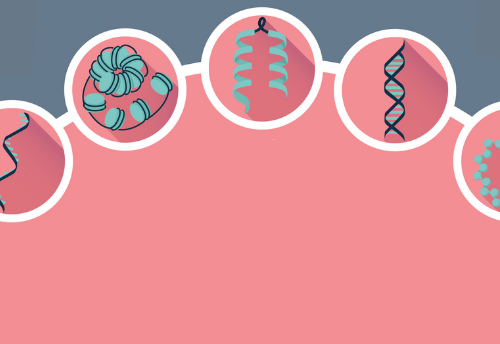Panel Discussion: Next-generation multiomics, producing and integrating simultaneous multiomic data

As multiomic approaches become more commonplace and techniques more sophisticated, the ability to obtain readouts from massively parallel studies of the same sample is improving. This ability brings with it a host of exciting new possibilities for the examination of disease states including cancer, genetic diseases and neurological conditions.
In this panel discussion, we will explore the techniques involved in these studies, the challenges that are arising from them and the most exciting applications of next-generation multiomics. With the insight of 4 expert panelists, the best practices for wielding multiomic approaches and integrating and interpreting the vast amounts of data produced will all be revealed.
What will you learn?
- The single-cell and spatial techniques facilitating the transition to next-generation multiomics
- Improvements and advice for integrating and interpreting multiomic datasets
- The key applications of next-generation multiomics
Who may this interest?
- Academics/Universities
- Research Institutions
- Pharma/Biotech
- Translational researchers
- Bioinformaticians
- Oncologists
- Immunologists
- Neuroscientists
Panelists

Mike Stubbington
Director, Computational Biology
10x Genomics R&D (CA, USA)
Mike obtained his PhD in molecular immunology and then left the lab bench for a computational postdoctoral position. During his postdoc, Mike developed methods for the single-cell analysis of T-cell receptor sequences. Mike then led a team working on the Human Cell Atlas before joining 10x Genomics. Mike now leads a group at 10x Genomics that focuses on the use of computational methods to understand biology from large-scale single-cell and spatially-resolved data.

Evangelia Petsalaki
Group Leader
EMBL-EBI (Cambridge, UK)
Evangelia Petsalaki’s research group studies the principles underpinning the context-specific regulation of human cell signaling. The group uses interdisciplinary approaches, including data-driven network inference, modelling of cell processes and data integration, to understand how different environmental or genetic conditions affect cell signaling responses leading to diverse cell phenotypes. Evangelia has a PhD in structural bioinformatics from EMBL and the University of Heidelberg (Germany) and did her post-doctoral work at the Lunenfeld-Tanenbaum Research Institute in Toronto, Canada, studying cell signaling using (phospho)proteomics data analysis and yeast genetics.

Keri Martinowich
Lead Investigator; Associate Professor
Lieber Institute for Brain Development; Johns Hopkins University School of Medicine (MD, USA)
Dr. Martinowich received a B.A. in International Relations from the George Washington University (D.C, USA) and a Ph.D. in Neuroscience from the University of California, Los Angeles (CA, USA). Following graduate work, she conducted translational research in neuropsychiatry as a postdoctoral fellow at the National Institute of Mental Health (MD, USA). She joined the faculty at Johns Hopkins and Lieber Institute for Brain Development. She oversees a research group that takes a cross-species approach to study how programs of gene expression in defined populations of cells contribute to circuit function relevant to neuropsychiatric disorders. The lab uses genetic manipulation in combination with molecular, cellular and systems-level techniques in animal models, and integrate these data with cell- and circuit-specific transcriptomic studies in the postmortem human brain.

Judith Zaugg
Group Leader
EMBL (Heidelberg, Germany)
Judith Zaugg is a Group Leader at The European Molecular Biology Laboratory (EMBL) Heidelberg and at the Molecular Medicine Partnership Unit (MMPU – University hospital). She studied at ETH (Switzerland), obtained her PhD at Cambridge University (UK), and did a postdoc at Stanford University (CA, USA). Her EMBL group uses systems epigenetics to study gene regulatory principles and disease mechanisms focussing on developing computational tools for multimodal data integration. Her MMPU group studies aging of the bone marrow and blood cancer. Judith serves on several Scientific Advisory Boards (Centre for Molecular Medicine Norway and the Hungarian Centre of Excellence for Molecular Medicine) and as scientific organiser of the EMBL|EMBO symposium on Multiomics data integration (www.embo-embl-symposia.org/symposia/2021/EES21-09).
This webinar was recorded on 28th July 2021
